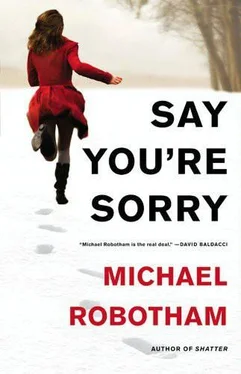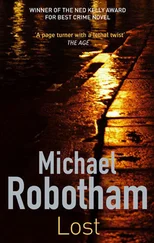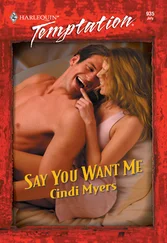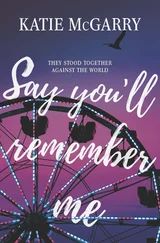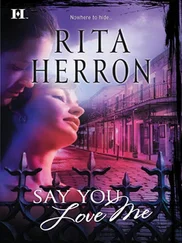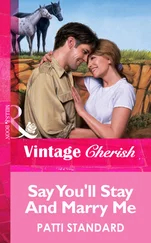Michael Robotham - Say You're sorry
Здесь есть возможность читать онлайн «Michael Robotham - Say You're sorry» весь текст электронной книги совершенно бесплатно (целиком полную версию без сокращений). В некоторых случаях можно слушать аудио, скачать через торрент в формате fb2 и присутствует краткое содержание. Жанр: Триллер, на английском языке. Описание произведения, (предисловие) а так же отзывы посетителей доступны на портале библиотеки ЛибКат.
- Название:Say You're sorry
- Автор:
- Жанр:
- Год:неизвестен
- ISBN:нет данных
- Рейтинг книги:4 / 5. Голосов: 1
-
Избранное:Добавить в избранное
- Отзывы:
-
Ваша оценка:
- 80
- 1
- 2
- 3
- 4
- 5
Say You're sorry: краткое содержание, описание и аннотация
Предлагаем к чтению аннотацию, описание, краткое содержание или предисловие (зависит от того, что написал сам автор книги «Say You're sorry»). Если вы не нашли необходимую информацию о книге — напишите в комментариях, мы постараемся отыскать её.
Say You're sorry — читать онлайн бесплатно полную книгу (весь текст) целиком
Ниже представлен текст книги, разбитый по страницам. Система сохранения места последней прочитанной страницы, позволяет с удобством читать онлайн бесплатно книгу «Say You're sorry», без необходимости каждый раз заново искать на чём Вы остановились. Поставьте закладку, и сможете в любой момент перейти на страницу, на которой закончили чтение.
Интервал:
Закладка:
Michael Robotham
Say You're Sorry
My name is Piper Hadley and I went missing on the last Saturday of the summer holidays three years ago. I didn’t disappear completely and I didn’t run away, which is what a lot of people thought (those who didn’t believe I was dead). And despite what you may have heard or read, I didn’t get into a stranger’s car or run off with some sleazy pedo I met online. I wasn’t sold to Egyptian slave traders or forced to become a prostitute by a gang of Albanians or trafficked to Asia on a luxury yacht.
I’ve been here all along-not in Heaven or in Hell or that place in between whose name I can never remember because I didn’t pay attention at Sunday scripture classes. (I only went for the cake and the cordial.)
I’m not exactly sure of how many days or weeks or months I’ve been here. I tried to keep count, but I’m not very good with numbers. Completely crap, to be honest. You can ask Mr. Monroe, my old math teacher, who said he lost his hair teaching me algebra. That’s bollocks by the way. He was balder than a turtle on chemo before he ever taught me.
Anyone who follows the news will know that I didn’t disappear alone. My best friend Tash was with me. I wish she were here now. I wish she’d never squeezed through the window. I wish I had gone in her place.
When you read those stories about kids who go missing, they are always greatly loved and their parents want them back, whether it’s true or not. I’m not saying that we weren’t loved or missed, but that’s not the whole story.
Kids who blitz their exams don’t run away. Winners of beauty pageants don’t run away. Girls who date hot guys don’t run away. They’ve got a reason to stay. But what about the kids who are bullied or borderline anorexic or self-conscious about their bodies or sick of their parents fighting? There are lots of factors that might push a kid to run away and none of them are about being loved or wanted.
I don’t want to think about Tash because I know it’s going to make me upset. My handwriting is messy at the best of times, which is weird when you consider I won a handwriting competition when I was nine and they gave me a fountain pen in a fancy box that bit my finger every time I closed it.
We disappeared together, Tash and me. That was a summer of hot winds and fierce storms that came and went like, well, storms do. It was on a clear night at the end of August after the Bingham Summer Festival, when the funfair rides had fallen silent and the colored lights had been turned off.
They didn’t realize we were gone until the next morning. At first it was just our families who searched, then neighbors and friends, calling our names across playgrounds, down streets, over hedges and across the fields. As the hours mounted they phoned the police and a proper search was organized. Hundreds of people gathered on the cricket field, dividing up into teams to search the farms, forests and along the river.
By the second day there were five hundred people, police helicopters, sniffer dogs and soldiers from RAF Brize Norton. Then came the journalists with their satellite dishes and broadcast vans, parking on Bingham Green and paying locals to use their toilets. They did their reports from in front of the town clock, telling people there was nothing to report, but saying it anyway. This went on for days on every channel, every hour, because the public wanted to be kept up-to-date on the nothingness.
They called us “the Bingham Girls” and people made shrines of flowers and tied yellow ribbons to lampposts. There were balloons and soft toys and candles just like when Princess Diana died. Complete strangers were praying for us, weeping as though we belonged to them, as though we summed up the tragedies in their own lives.
We were like fairy-tale twins, like Hansel and Gretel or the babes in the wood, or the Soham girls in their matching Man United shirts. I remember the Soham girls because our school sent cards to their families saying our prayers were with them.
I don’t like those old fairy tales-the ones about children getting eaten by wolves or kidnapped by witches. At our primary school they took Hansel and Gretel off the shelves because some of the parents complained it was too scary for children. My dad called them PC Nazis and said next time they’d be saying Humpty Dumpty promoted violence against unborn chickens.
My dad isn’t famous for his sense of humor, but he does have his moments. He once made me laugh so hard I snorted tea out my nose.
As the days passed, the media storm blew through Bingham. Cameras came into our houses, up the stairs, into our bedrooms. My bra was hanging off the doorknob and there was an empty tampon box on my bedside table. They called it a typical teenager’s room because of the posters and my collection of crystals and my photo-booth portraits of my friends.
My mum would normally have gone mental about the house being so messy, but she mustn’t have felt much like cleaning up. She didn’t feel much like breathing by the look of her. Dad did most of the talking, but still came across as a man of few words, the strong silent type.
Our parents picked apart our last days, putting them together from fragments of information like those scrapbooks people make about their newborn babies. Every detail seemed important. What book I was reading: Curious Incident-for the sixth time. What DVD I last borrowed: Shaun of the Dead. If I had a boyfriend: Yeah, right!
Everyone had a story about us-even the people who never liked us. We were cheeky, fun-loving, popular, hard-working; we were straight-A students. I laughed my ass off at that one.
People put a shine on us that wasn’t there for real, making us into the angels they wanted us to be. Our mothers were decent. Our fathers were blameless. Perfect parents who didn’t deserve to be tormented like this.
Tash was the bright one and the pretty one. She knew it too. Always wearing short skirts and tight tops. Even in her school uniform she was striking, with breasts like hood ornaments that announced her arrival. They belonged to a grown woman, a lucky woman, a woman who could model bras or be draped over the bonnet of a sports car at a motor show. She lapped up the attention, rolling the waistband of her skirt to make it shorter, undoing the top button of her blouse.
At fifteen a girl’s looks are pretty fickle. Some blossom and others play the clarinet. I was skinny with freckles, a big old head of tangly black hair, a pointy chin and the eyelashes of a llama. My assets hadn’t arrived, or they’d been delivered to someone who must have prayed harder, or prayed at all.
I was built for speed rather than low-cut dresses and short skirts. Rake-thin, a runner, I was second in the nationals for my age group. My father said I was part-whippet, until I pointed out that likening me to a dog did nothing for my self-esteem. Homely, was my grandmother’s description. Bookish, said my mother. They could have said plain as a pikestaff, but I don’t know what a pikestaff looks like. Maybe I make a pikestaff look good.
Tash was an ugly duckling that blossomed into a swan, while I was the duckling who grew into a duck-a less happy ending, I know, but more realistic. Put another way, if I was an actress in a horror movie, you’d take one look at me and say, “She’s toast.” Whereas Tash would be the girl who gets her kit off in the shower and is rescued in the nick of time and lives happily ever after with the hero and his perfect teeth.
Maybe she deserved that happy ending, because real life hadn’t been such a picnic. Tash grew up in an old farmhouse half a mile from Bingham, along a narrow lane that is just wide enough for single cars or tractors. Mr. McBain rented the farm, hoping to buy it, but he could never raise the money.
Читать дальшеИнтервал:
Закладка:
Похожие книги на «Say You're sorry»
Представляем Вашему вниманию похожие книги на «Say You're sorry» списком для выбора. Мы отобрали схожую по названию и смыслу литературу в надежде предоставить читателям больше вариантов отыскать новые, интересные, ещё непрочитанные произведения.
Обсуждение, отзывы о книге «Say You're sorry» и просто собственные мнения читателей. Оставьте ваши комментарии, напишите, что Вы думаете о произведении, его смысле или главных героях. Укажите что конкретно понравилось, а что нет, и почему Вы так считаете.
